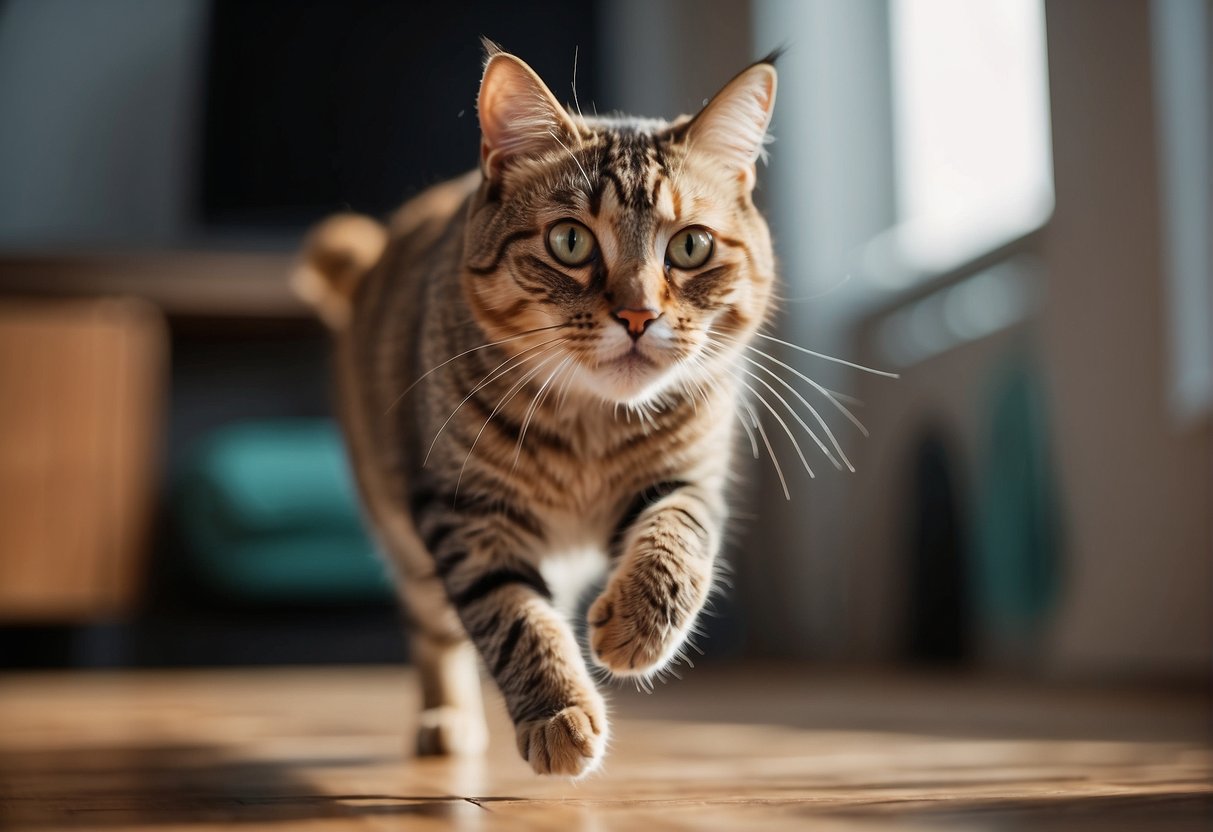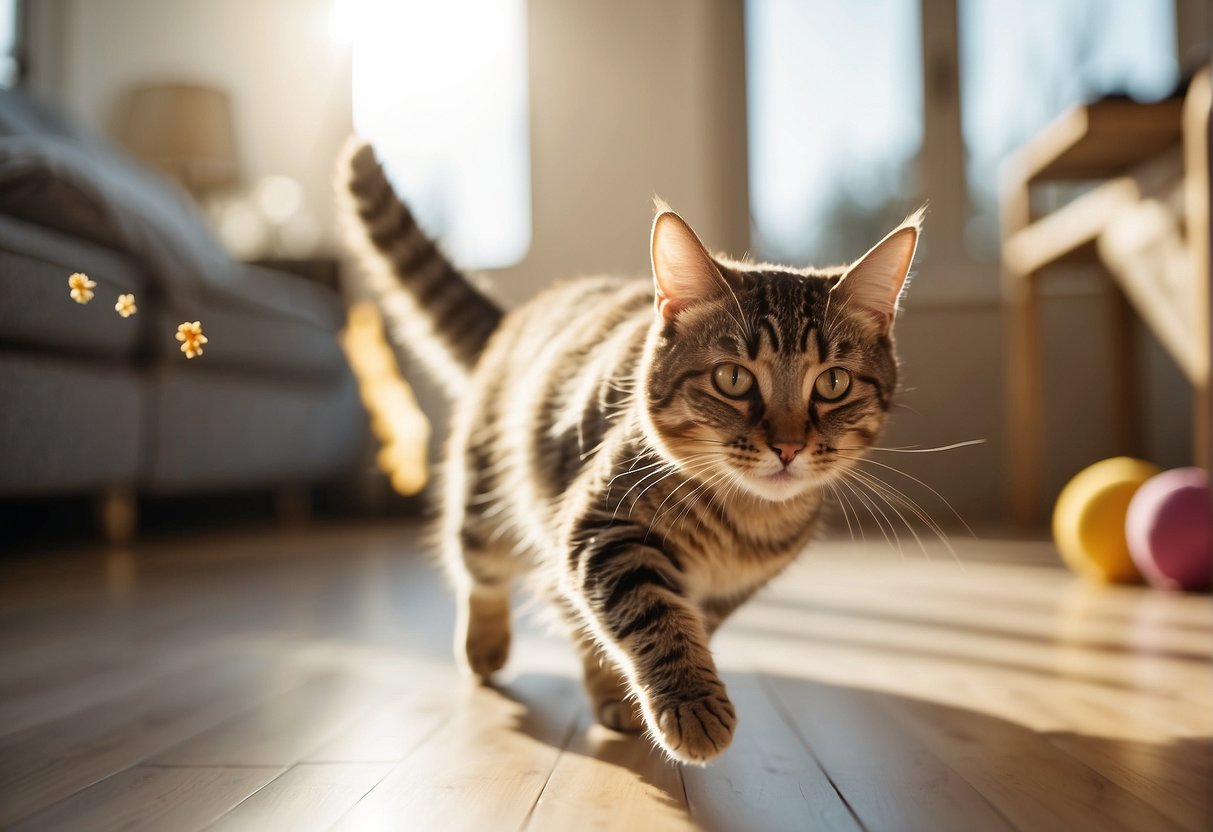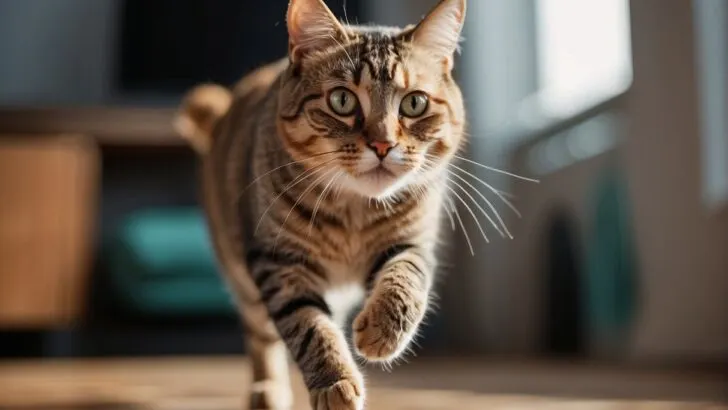Cats absolutely need exercise for their physical and mental well-being, just as much as any other pet or even us humans. It’s not just about keeping your feline friend from becoming overweight. Regular activity helps maintain strong muscles and reduces the risk of behavioral issues that can arise from boredom.
For instance, you might notice your own cat pouncing on toys or chasing laser pointers. These are not just cute antics, but also crucial activities that keep them agile and engaged.

Incorporating playful activities into your cat’s daily routine can also enhance their quality of life significantly. Engaging in interactive play sessions with things like feather wands or small balls can stimulate their natural hunting instincts, which is vital for their emotional health.
You might have found that your cat appears more content and less anxious when regularly stimulated with exercise—this isn’t merely coincidence.
When it comes to keeping your feline friend both physically fit and mentally sharp, incorporating exercise into their daily routine can make a world of difference. Regular activity can help manage your cat’s weight and energy levels, while also providing essential mental stimulation.
Physical Health Advantages
Weight Management: One of the primary physical health benefits of regular exercise for cats is maintaining a healthy weight. Engaging your cat in playtime can help prevent obesity, which is crucial because excess weight can lead to a higher risk of diabetes and arthritis.
- Healthy Muscles: Exercise helps to keep your cat’s muscles toned and strong, which is especially important as they age.
Mental Stimulation and Well-Being
Combat Boredom: Just like us, cats can get bored. Structured playtime is key to keeping their minds active, which can ward off symptoms of depression and increase overall happiness.
- Mental Health: Regular mental stimulation through exercises and interactive toys can help reduce anxiety and prevent behavioral issues.

Interactive Play Sessions
Interactive playtime encourages your cat’s natural hunting instincts while strengthening the bond between you. Consider wand toys with feathers or other enticing attachments that mimic prey.
Spending at least 10-15 minutes a couple of times a day in such play sessions can have a significant positive impact on your cat’s well-being and behavior.
Exercise Toys and Equipment
A variety of toys and equipment can keep your cat active indoors. Exercise wheels have gained popularity for their ability to provide a vigorous, self-guided workout.
Balls and motorized toys can keep your feline friend engaged and moving. Always ensure that toys are safe and suitable for solo play.
Outdoor Activities
Venturing outdoors can be a thrilling experience for a cat. You can train your cat to walk on a harness and leash for supervised exploration, aiding in their physical and mental stimulation.
Alternatively, a secure cat enclosure allows your cat to enjoy fresh air and the joy of climbing and hunting without the risks of roaming free.
When it comes to feline fitness, your cat’s age and individual needs are pivotal in determining the right amount and type of exercise. Breed, lifestyle, and any health conditions are also key factors that influence how you should approach exercise with your cat.
Kittens and High-Energy Cats
Kittens are synonymous with boundless energy. You’ll often find them chasing after a ball, getting into playful bouts with a catnip toy, or performing gravity-defying leaps.
This high-energy play is essential not just for their physical fitness, but also for honing their predatory instincts and social skills.
Breeds like the Abyssinian or Siamese are often high-spirited well into adulthood, so interactive toys and playtime should be a staple in their daily routine to prevent undesired weight gain and keep their zestful nature satisfied.
- Play Activities for Kittens and Energetic Adults:
- Interactive Toys: fishing rod toys, laser pointers
- Puzzle Feeders: engage their mind during mealtime
- Daily Playtime: multiple short sessions are ideal
Senior Cats and Health Considerations
As cats mature into their senior years, their get-up-and-go might start to wane. However, exercise remains crucial for maintaining a healthy weight and mitigating joint pain, such as the discomfort associated with arthritis.
Gentle play tailored to their reduced energy levels is appropriate. Soft toys that can be easily batted around without much effort and cozy, comfy areas for grooming themselves can encourage movement without overexertion.
- Senior Cat Exercise Tips:
- Gentle Play: light batting toys, soft balls
- Lifestyle Adjustments: easily accessible litter boxes and raised food bowls to reduce strain
- Regular Vet Checks: to tailor exercise for arthritis or other health conditions

My name is James, and welcome to FAQCats!
Along with our team of cat owners, expert pet enthusiasts, and pet professionals, we aim to write engaging helpful, engaging content about cats. At FAQCats we strive to provide content that’s accurate and fun to read. Our team writes about everything related to cats; even the most complex of topics. Through extensive research and caring for our own fur-pals, we’re able to provide something cat owners worldwide will love. Have a look around, and leave us feedback anytime!

